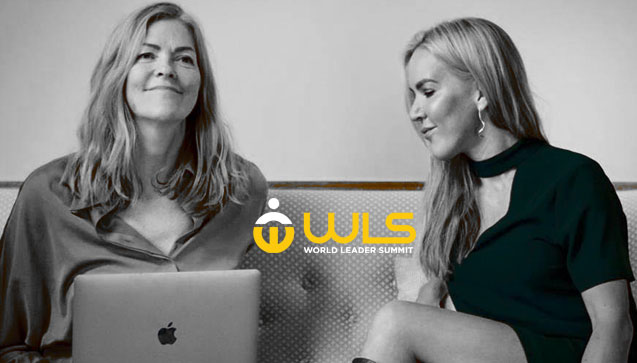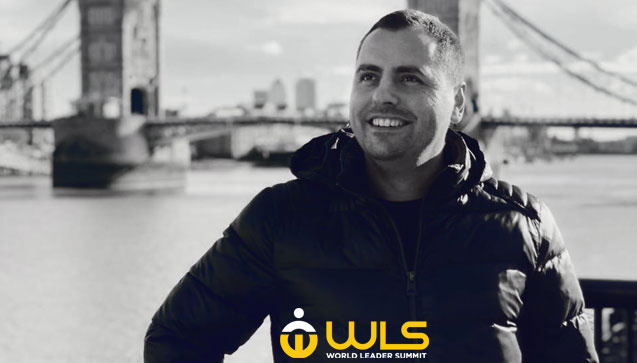
If you ever decide to forego a “real” job in favor of starting your own company, you’re bound to make at least a few rookie mistakes. If you’re lucky, most are the kind that are easy to fix and learn from.
But most entrepreneurs, in hindsight, agree that there are some things you’re better off being prepared for. Hindsight is definitely 20/20—especially when you’re the boss. Consider these lessons you don’t have to learn the hard way.
Changing how we approach and build modern solutions to personal dilemmas and satisfying intrinsic human needs is everyone’s passion.
We’ve picked up many, many useful tips and wanted to pass some knowledge along. Below is a list of 10 things we wish everyone known before creating a startup.
Solve Your Own Problem
Many businesses and failed numerous times. When you finally find success, it is because you created a solution to your own problems and turned that into a business. Many launched many new companies and websites to foster their business and help people.
Do Your Market Research Early On
Like most entrepreneurs, you must be passionate about many ideas and opportunities. Many have also launched and funded many startups only to realize later on, as they learned more about the market, that they should have done more extensive market research early on. It is important to understand the industry you are playing in, your competitors, and the market forces at play. Even more so, it’s important to understand your customers–their behaviours, pain points and decision making processes.
Be Extremely Focused
There is a tendency for entrepreneurs to try to do too much at once. But the key to success in the beginning lies within having laser focus. If your product or service solves a big problem, try to focus on a niche instead. Facebook started out as a social network for college students. Only when they were successful with that niche did they open their service to the general public.
Keep It Simple
One may think that offering customers a large number of choices is the smart thing to do. Yet, more choices lead to decision making paralysis. It is usually the company that provides users with fewer choices that wins. Examples include: In & Out Burger’s simple and limited menu, as well as Apple’s limited number of choices for most of their products. As a startup, resources are limited. Focusing on providing a simple product or service with less choices, less steps, less features may be the way to go.
Bootstrap Whenever Possible
Raising money to launch a startup is very common among entrepreneurs. In doing so, you give up valuable control of your business. When entrepreneurs had to do it all over again with their company, many decided to bootstrap. Writing the software code yourself, hosting the service with a cheap ISP and using free marketing resources at your disposal, you would be able to launch the business with your own money.
Think Carefully Before Taking Money
Whenever possible, venture capital (VC) money should be considered unacceptable except in specific circumstances where VCs can add significant value to your business. Being a young founder in your mid-twenties, you may be asked to take on an experienced CEO. Times are now tough after the dot-com crash when online advertising went from $20 CPM down to under $2 CPM. Instead of sticking with your strategy to revamp the company’s business model. So it’s better to fund your own money and it’s advisable not to be dependent on any third source.
Focus on Intellectual Property Early On
Entrepreneurs may not focus too much on intellectual property in the beginning, but copyright and trademarks are important and will be increasingly crucial in protecting one’s product, service or brand once some success has been achieved. When you launch, one of the first things anyone does was to apply for a trademark. The trademarks which have since acquired secondary meaning, have come in handy as many competitors try to encroach upon our space.
Screen Your Hires Well
Some of the worst hires have been always experienced with first few employees. Back then, people lacked the resources to perform detailed background checks. They have too experienced many fraud degree holders whom we hire unconsciously and later they prove to be a setback for the company.
Leverage Free Marketing Opportunities
As an entrepreneur with a limited budget, spending money on marketing can be a very costly proposition. When launching, many looked into free marketing opportunities. First leveraging free online resources such as Craigslist, then moving onto PR opportunities to get free media coverage for their service. A controversial product or service may shun away investors but it was a gold mine when getting lots of free media coverage.
Have Strong Agreements Up Front
One of the most important lessons to have learned over the years as an entrepreneur, is that whenever there is the possibility for misunderstanding put expectations down clearly in writing. A strong agreement with partners, investors and employees are crucial.
Let’s begin with the most common distinction between these two terms. In general, we think of growth in linear terms: a company adds new resources (capital, people, or technology), and its revenue increases as a result.
By contrast, scaling is when revenue increases without a substantial increase in resources. Processes “that scale” are those that can be done end masse without extra effort – if I send an email to 10 people or 1 million, my effort is essentially the same. Which is why enterprises use email marketing so heavily. It scales so effectively. Or for another example – an insurance company that scaled business operations by simply switching to a cloud business phone system.
But this is just the technical distinction between the two words. Let’s look a little closer at what each looks like in practice.
Growing a business
Generally seen as the definition of a successful company, growth refers to increasing revenue as a result of being in business. It can also refer to other aspects of the enterprise that are growing, like its number of employees, the amount of offices and how many clients it serves — these things are almost always linked to growth of revenue.
The biggest problem, however, is that it takes a lot of resources to sustain constant growth.
Take for example an advertising agency that currently has five clients, but which is about to take on five more clients. Increasing the number of companies, it sells to will bring in more money, but chances are it won’t be able to get the work done without hiring more people.
Because of this, financial growth can only be achieved while making larger losses, too.
Companies that offer professional services, like the advertising agency above, will always have to deal with this problem. Taking on more clients leads to hiring more people to support them — while it increases revenue by adding clients, it has to increase costs at the same time.
Scaling a business
Because of the costs associated with growth, modern founders have become obsessed with the idea of scaling.
The key difference with growth is that scale is achieved by increasing revenue without incurring significant costs. While adding customers and revenue exponentially, costs should only increase incrementally, if at all.
A great example of a company that’s successfully figured out how to scale is Google, which in recent years has been adding customers (either paying business clients or ad-supported free users), while being able to keep costs at a minimum. As of 2017 it had seven products with over a billion active users each, while only employing about 88,000 people.
The difference between growth and scaling becomes clearest when a company isn’t a startup anymore, but is not a large corporation yet, either. At this critical stage the business will have to decide between growing at a regular rate or switching over to faster company scaling.
If it wants a shot at making a lasting impact on the industry and perhaps even society as a whole, it has to be done without accumulating a high amount of overhead.
Unfortunately there’s no clear-cut path to successful scaling — if there was, it would be much less impressive to build a million-dollar company. There are a couple of things to keep in mind, however.
Startups vs scaleups
Here we have two more terms that are often confused. You probably already have a firm grasp on what a startup is, but how does that compare with a scaleup?
An entrepreneurial venture that has achieved product-market fit and now faces either the ‘second valley of death’ or exponential growth.”
To put that another way, once a startup has proven that it has a product people want, it’s time to take that product to the masses. This usually requires massive investment in new people, offices in different markets, and lots of advertising in the form of hosting educational webinars, attending tradeshows, prospecting and closing leads, and other tactics.
Which actually sounds sort of counter to our earlier definition of “scaling” – increasing revenue without increasing investment. But if successful, a scaleup will add exponential growth with only linear or marginal investment. Essentially, if they can unlock new markets and reach new audiences, a scaleup will grow faster than previously possible.
Key challenges for scaleups
For the sake of argument, let’s imagine a business moving from startup to scaleup overnight. What was previously a local company with around 50 people in one cosy office is likely now moving international.
If it were simple, every company would do it. So what are the difficulties most scaleups face?
They need investment
This is the most obvious prerequisite: today, most young companies need significant investment (usually from venture capitalists) to scale up. This often comes in the form of series B or C funding.
Earlier funding rounds are used to build a minimum viable product (MVP) and establish market fit, and if they’re able to secure further funding, it’s to expand quickly.
They need scalable processes
Typical scaleups have a product that scales well – it appeals to buyers far greater than the current market served. But, because they’ve moved quickly as a startup, a lot of internal processes aren’t designed to scale.
The most obvious of these are company expense policies. As a small company, you don’t really need an expense policy. If someone needs to travel or buy something, they can sort it out with the founders directly. But once you have multiple offices and handfuls of people traveling at once, this is simply no longer an option.
It’s tempting to believe that diversification will be the catalyst for you to scale. Introduce a new product range or add extra services and this will unlock a flood of new revenue.
But “if a business is growing through an ad hoc series of actions and decisions, those start to fall apart as you grow larger. Small gaps will become chasms. Confusion and inconsistency will become chaos. And if employees are operating from their own playbook, there’s no way to deliver a consistent product or experience.
Achieving scale requires a level of repeatable and predictable systems. Refining and developing these systems is how companies are able to go from thousands of customers to millions.”
Tell us about yourself
Katarina Strandberg – Swedish Business lawyer in love with investments and building companies. Love people with grit and passion, love to solve problems and team up with great persons for great results. Learning and training are always a core of my every day.
How many hours a day do you work on average?
“Smiles” it depends how you define work, but up to 14 hours
Can you describe/outline your typical day?
Very varied, from standing on stage, writing guest articles and doing workshops to sitting in complete isolation with focus on producing top quality legal documents such as shareholders agreements and finding legal and business solutions.
How has being an entrepreneur affected your family life?
It has
i) made me a very happy and inspired mom and its clear that this positive energy that you can really create your own life as impacted my children in a positive way,
ii) it has given me great freedom, even if I work a lot I can most often choose where and when I preform.
What motivates you?
Solutions, building and scaling – seeing positive results – interactions and meeting great people, gaining their respect and confidence and getting to connect people.
How do you generate new ideas?
I train. Thai fighter. It´s 100 % focus mind and body.
What is your greatest fear, and how do you manage fear?
My greatest fear is to die without enough passion in my life.
How did you come up with the name for your company?
The Swedish Villa.
It was all to the credit of my amazing co-founder Leila Falkenberg. She did it as a reference to the Swedish childrens story about Pippi Longstocking and her creative and inclusive house Villa Villekulla.
How did you raise funding for your venture?
Through outreach and network with business angels, and through presenting us as founders in a very honest, passionate and transparent way.
How do you build a successful customer base?
First and foremost by word of mouth, networks and recommendations, and of course through digital communication about our experts, and showing the results the
Experts produce which has made international brands, big and small, turn to us trusting us to really deliver as a loyal creative partner.
How does someone get you excited and willing to commit?
Showing a great work ethics, doer mentality where you find solutions and act on them directly without “busy-work”.
As a entrepreneur, how do you see the market is growing in your country?
Very-very exciting and positive! Sweden as a great eco-system, great understanding for sustainability and a great stable and safe society why it is good for risk spreading for international investors to look to Sweden and that creates even more synergies.
How do you advertise your product/service?
Nr 1 is organically and transparent through our social media channels. Linkedin and instragam are what we focus on.
To what do you attribute your success?
My and Leilas dedication, hard work and non-stopping respect and admiration for each other as persons and professionals in our different fields. We focus and love competence and doing a great job on each and every project.
What was the reason to start an IT company ? Are you from the same background?
I would say we are a hybrid – IT and personal service in one. And that is one of our Unique Selling Points. We saw a need for that, where we function as digital nomads and can provide the top creative unique services to every corner of the world in a transparent, result oriented and cost efficient way.
What do you look for in an employee? The most important thing to us is that they fit into our corporate culture!
Hard worker, in love with responsibility and delivering great results – need to like accountability. Action, solution, and positive are features that are a must.
What made you choose your current location?
As digital nomands our key point is that we can sit from anywhere and to the best work ever – so the location should be less relevant for us. We do however love to travel and meet clients and organizations in person when Mr Covid so allows again.
What kind of Corporation is your business?
Service, B2B, within marketing and communication. We take the side of the brand and help them procure the right talent and projects for their specific needs. We are brand advisors and we have put together a unique community of top level creative experts is all areas of marketing and communication so that the client always gets the best without having to hire or pay a non-transparent hug project fee to an advertising agency.
Do you work locally or internationally?
Internationally
What’s your company’s goals?
To peacefully disrupt the marketing industry by making creativity king again. And to show that sustainability and financial results go together.
What are your responsibilities as the business owner?
Oh where do I start. First and foremost, to show what we stand for. Secondly to be transparent and show us and what we do. We are part of many international NGO communities and contribute through also our professional experts work communicating for the brands their social responsibilities.
Does your company help the community where it is located?
Yes! We are dedicated to diversity and inclusion.
Have you ever turned down a client?
Yes!
If you had one piece of advice to someone just starting out, what would it be?
Be ready for challenges and mentally focus on grit and focus. Hard work pays off. Never feel sorry for yourself always see the possibilities and work for them.
For Industry News chk https://www.entrepreneursface.com/ Resouce section
The author of the first Croatian ebook on the topic of sponsored and native articles. It is written in Croatian language and was downloaded by 2.000 marketing professionals.
His main focus is brand development, marketing communications planning, content marketing and digital platforms.
Tell us about yourself
I am Bojan Bernik from Zagreb, Croatia.
I am a serial entrepreneur who enjoys traveling and creating new businesses.
I am a founder and co-founder of 3 companies;
Morgan Grey marketing agency.
Morgan Code software development company
Alter Advoco sales outsource company
How many hours a day do you work on average?
It depends, because during winter when it’s cold and dark I usually work around 10 hours per day and during summer months I work four hours per day and spend most of my time outside.
Can you describe/outline your typical day?
My typical day is composed of a few hours of emails and calls, an hour of meetings, face to face and a few hours of exploring new ideas and creating stuff.
How has being an entrepreneur affected your family life?
I have been an entrepreneur for the last 13 years, so my family is Accustomed to this way of life.
What motivates you?
I love the freedom that I have as an entrepreneur, and I love to create something from nothing.
How do you generate new ideas?
I read a lot. Whenever I see a problem I see it as a possibility to solve it and create a new business from it.
What is your greatest fear, and how do you manage fear?
My biggest fear is that’s my company will fail. I think that is the biggest fear of any entrepreneur.
How did you come up with the name for your company?
Since I have a few companies, I can say it’s always a challenge to think of a name. My last company is Alter Advoco, it means a “second phone call”, or a follow up call. Because we do majority of sales over the phone.
How did you raise funding for your venture?
I am funding my businesses by myself, bootstrapping.
How do you build a successful customer base?
If you give people what they want, an experience they will love, then you have them forever as your loyal customers.
How does someone get you excited and willing to commit?
Something that will help millions of people solve a problem and make their life a little bit better.
As a serial entrepreneur, how do you see the market is growing in your country?
In Croatia there are more and more IT companies every day. I would like to focus on the international market because in Croatia there are only 4 million people.
How do you advertise your product/service?
We get the majority of our business through recommendations and Word of mouth. I believe that a marketing agency should only advertise through content marketing, and that is what we are doing.
To what do you attribute your success?
I am a very persistent and stubborn person. If you tell me something is impossible, I will do it.
What was the reason to start an IT company? Are you from the same background?
And since I have a few web portals I know a lot about web and web development. We want to create software that is niche and unique in solving problems and helping people and companies do thing more efficiently.
What do you look for in an employee?
The most important thing to us is that they fit into our corporate culture!
For me the most important thing for an employee is that he is honest and loyal and that he wants to be here and he finds joy in the work we are doing.
What made you choose your current location?
I love living in Zagreb because it’s a nice small city with only 1 million residents. From here to other major city in Europe is just two hours by plane so it is the best possible location in the world.
Do you work locally or internationally?
I work locally and internationally because Croatia is too small for our big ideas.
What’s your company’s goals?
Our goal is that our clients love to work with us and that our customers whoever they are love our products and services.
What are your responsibilities as the business owner?
I need to make sure that everyone in the company is happy and that they have everything they need to do their job the best possible way. Also I am responsible for the end products and everything the company is doing.
Does your company help the community where it is located?
We try to do our best to help the community and support charities.
Have you ever turned down a client?
Every other client we turn down because it is not the best fit for us. If I cannot give you the best service either because a you or some other factors, I will not work with you. The honesty and fairness come first.
If you had one piece of advice to someone just starting out, what would it be?
Don’t try to fix what already works, try to fix stuff that doesn’t. Focus on niche problems, not the obvious ones that everyone is trying to solve. Of course you cannot beat Google. You can try, but the odds are not in your favour.
Tell us about yourself
Neil J. Lesher, Founder CEO, LeshTronix Drone Systems.
50 years old
From New York, NY
My professional background is Market Data technology-software Analyst within the Investment Banking sector
I love Family. Family is everything, they are my ultimate fans and motivators
Hate is a deep concept. I loathe procrastination, lack of enthusiasm and any excuses which inhibit idea execution.
How did the idea for your business come about?
I’ve been an electronics enthusiast since childhood and always had a passion for UAV/Drone technology. About 18 months ago, I was with my Father and observed his frustration with not being able to properly handle his iPhone because of advanced Arthritis. This is when the “Da Vinci” lightbulb exploded in my mind and I conceived “PhoneQuad” which is a hovering smartphone case.
What was your key driving force to become an entrepreneur?
I’m a purebred Entrepreneur. The Entrepreneurial spirit and drive that I have is pre-wired into my DNA.
How did you come up with the name for your company?
It’s a play on words, my last name Lesher + Electronics = LeshTronix
How did you raise funding for your venture?
I’m in the process of raising funds now. I’m speaking with various venture capital, providing my pitch deck and having some deeper conversations regarding a myriad of strategies.
How do you build a successful customer base?
I’ve always believed that a product or service should reflect the morals, values and ethics of its creator and founding team. Building a loyal customer base starts with creating a great product, supported by a hyper energetic and enthusiastic group of professionals. Consumer confidence is the initial goal. Once you have that, then you have to maintain and grow it through exceptional service, marketing (customer retention efforts) feedback and always looking towards improvement. For me, I’d rather be on the assembly line than buried in the P&L process. Someone else on the team can own that.
How did you get involved with business?
LeshTronix Drone Systems is my baby, its my 3rd child. I’m the founder and in the process of nurturing it so it properly evolves into a force that positively contributes back to the world. I’m not just developing a product, but a cultural-technological revolution that will change the way society interacts with smart devices.
How does someone get you excited and willing to commit?
Although I’m an inventor at heart, I pride myself of being a skilled salesperson. I know my product, I know the sector I’m selling into, I know I have something of value and quality. If a salesperson can get me excited about things that excite them, then I’ll be willing to put in some due diligence and potentially become a customer. I’m not impulsive, I’m patient.
How do you advertise your business?
I work with a graphic designer and we’ve created some awesome concept videos and pictures which portray PhoneQuad in the real world. It’s important to ethically display your intent without depicting functionality that will never happen. My visualization techniques properly exhibit what we intend to mass manufacture.
How do you advertise your product/service?
Right now, I’m utilizing the power of Social Media. I have an Instagram page, LinkedIn and distribute my website’s URL and concept video in all my communications.
To what do you attribute your success?
Success is not a straight path. Many curves and valleys to watch out for. Even when I reach it, I might not know I’m there.
What do you look for in an employee?
The most important thing to us is that they fit into our corporate culture!
When I’m hiring people and focused on building the right team, although experience is important, attitude is paramount.
What made you choose your current location?
I’m a native New Yorker and love it here. My family has been in the New York City area since 1901. We love the multicultural atmosphere and appreciate the ability to visit the Beach, the mountains and the city all within an hour.
What kind of Corporation is your business?
LeshTronix is a startup UAV/Done company that designs, develops and sells the Hands-Free PhoneQuad Smartphone platform.
Do you work locally or internationally?
Our team is local to New York. Our relationships and corporate trajectory are international.
What’s your company’s goals?
We are pioneers in the UAV/Drone sector. There are other somewhat competing products, but those are true “Selfie Drones” and specifically target the x-games and outdoors enthusiast demographic.
• PhoneQuad allows the end user to lock their smartphone (Apple or Samsung) inside it.
• You can then power-on and deploy PhoneQuad, which means its in full Hover mode. You can walk away from it and use voice commands via Bluetooth AirPods to control certain aspects of functionality. We are the Anomaly in this sector.
What is unique about your business?
Our goals are to produce best-in-class products and truly change the world in the process. There isn’t a Drone platform in the world that enable hands-free pics, videos and video call functionality using smart devices. Imagine your smartphone following you while you walk and talk. This is just one aspect we’re focused within our multi-generational pipeline of PhoneQuad products.
What are your responsibilities as the business owner?
I’m a hands-on operations guy. I take hold and take charge when an idea is accepted into the program and put all my efforts to ensure we breathe life into it. If I believe in it… I will make it happen. I’m also directly responsible for all our actions, strategies and who we on-board as new team members.
Does your company help the community where it is located?
One of our short- and long-term goals is community support. We fully intent to be active in all regions where are products are sold and used. As a startup, our resources are limited, but as we grow, our humanitarian and philanthropic strategies will come to life.
Have you ever turned down a client?
We don’t have clients yet, but I’m sure that there will be many scenarios and expectations that we will deal with while we take this path.
What help do you need from our ecosystem?
Economics are always going to play a role in the tech-startup world. Just because someone or some entity offers your company money, doesn’t automatically mean they are the proper partner. Our goal is to find the right strategic partner who can help guide through all the details leading up to and beyond manufacturing and global distribution.
The essence of a true partnership is when 2 or more parties come together and truly take ownership of their strengths. That’s what I need in a dedicated venture partner.

Copyright © 2022 World Leader Summit. All rights reserved.





